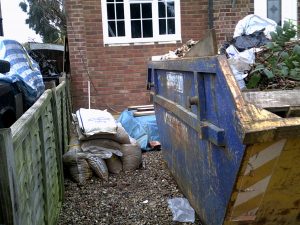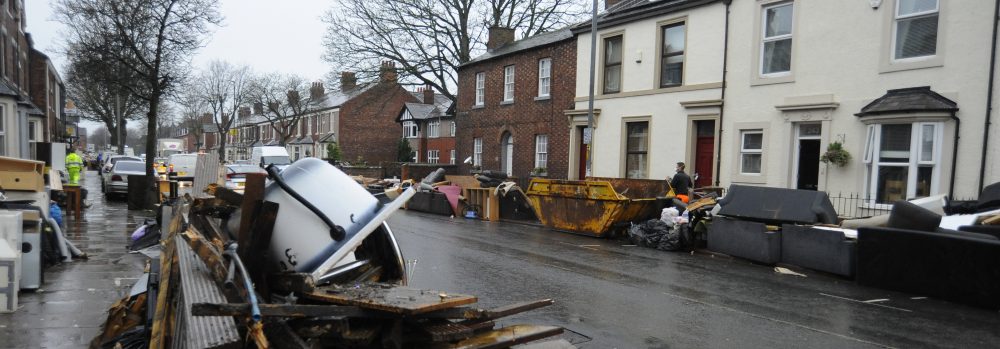This is Andrew’s story about what happened to him, with some key learning points at the end…
Background
On the evening of 9th February 2014, after days of persistent rain, seven severe flood warnings (the highest category) were put in place for the River Thames in north Surrey. Residents were evacuated and roads and schools were closed. The Staines area experienced clusters of events involving tidal, river, rainfall and groundwater flooding. These four stories, taken from our ‘Children, Young People and Flooding: Recovery and Resilience’ project, show how flooding can reveal, and even exacerbate, existing social vulnerabilities.
Andrew, aged 15, lives in a house with his mum, dad and older brother. Evacuated from their home by the military, Andrew was most concerned about his pet lizard – trying to keep her warm.
He spent the first night at his ‘nan’s’. Then he moved with the rest of his family to his aunt’s for three days, but she had a newborn baby and it wasn’t convenient for the family to stay there any longer, so they then moved into a hotel.
After the evacuation the family returned to their home to check on the damage:
We saw the water in the house… It wasn’t a lot, it was just about maybe three, four inches, but it can still do a lot of damage. You still have to do one metre up from that, so it creates a lot of damage. Yeah, not good.

Photo taken by one of the participants from the Children, Young People and Flooding Project
Andrew told us that sandbags would not have stopped the groundwater from coming up through the floorboards: ‘sandbags won’t stop that’. Andrew also told us that he felt that his local community was ‘splintering apart’, which he said was ‘disappointing to see’ after the council had distributed the sandbags:
We had to fight for them. There was a lot of people who wanted them, just taking more than they needed and they weren’t sharing it out. I think everybody was for themselves .… When I moved out, you know, it was just us, it’s just, you’ve got your family and that’s it. Nobody helps you.
Living in the hotel was difficult – Andrew had to share a small room with his older brother which he said was ‘not much fun’. He discovered that hotel living disrupts your day-to-day life and there’s a feeling of lost independence: ‘you couldn’t even get your own cereal – like, you want to do those everyday things’. The conditions in the hotel affected him and he empathised with other people who had been evacuated and were trying to get on with their lives whilst negotiating with their insurers:
There’s people on my road who are still not in their houses…Yeah, that’s not good at all – still living in hotels – and they’ve got like whole families going to work and going to school and you can’t cope with it’.
Andrew also told us that the disruption affected his studies because he couldn’t access crucial GCSE documents online:
So it really affected, like people had to go on line and get their like… their work off of there. But I couldn’t because I’m in a hotel, I’ve got no Wi-Fi. The hotel’s Wi-Fi was absolutely terrible, you couldn’t do anything, and this was when we were choosing options. I couldn’t even like fill out that form because it was online. I couldn’t print it out.
Andrew ended up living in the hotel until the end of March (about 6 weeks). The family then went to live in a rented house until the repairs were completed on their home. They returned home in November 2015, after 21 months away.
Andrew’s story shows how displacement impacts on day-to-day life, education, people’s sense of independence and understanding of what it means to be flooded. Interestingly, it challenges the common claim that disaster brings people together. We see that tensions within the community can be heightened by creating a feeling of injustice if groups within the community are perceived to be treated differently.
Key Points
- Groundwater flooding takes the family by surprise
- Shows how flood experience leads to important new knowledge
- Living in a hotel results in loss of independence
- Living on a day-to-day basis in a hotel is expensive
- Being flooded affects your education
Please reference as: Flooding – a social impact archive, Lancaster University
